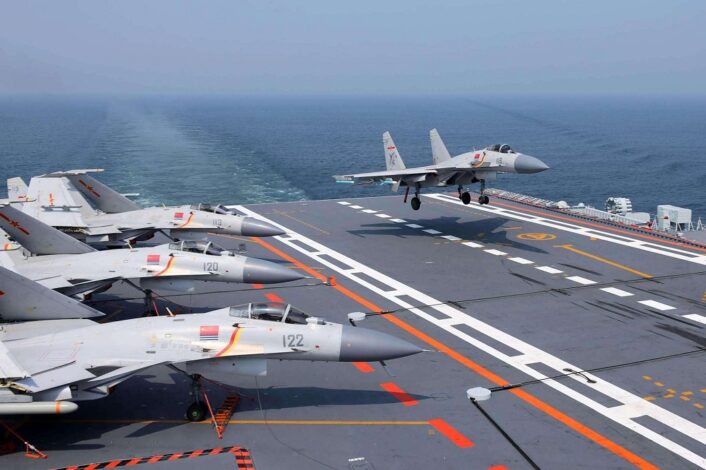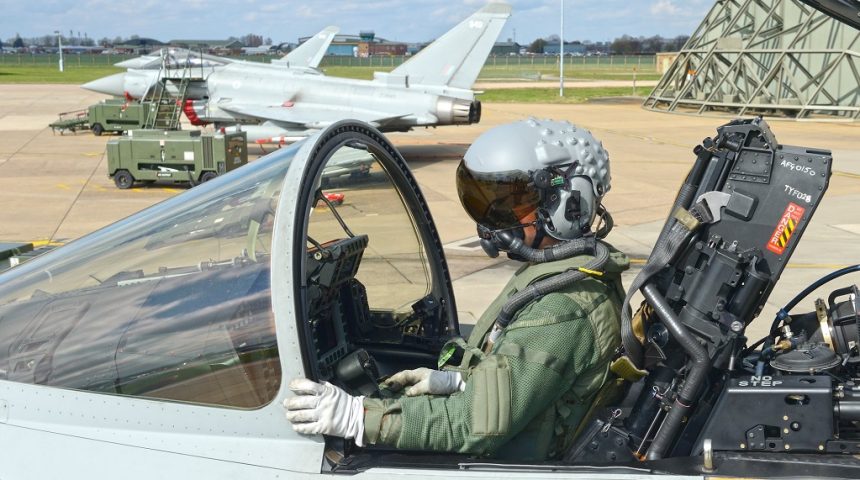Western pilots approached with remunerative contracts to provide training to Chinese pilots.
After reports about British pilots being targeted by China trying to recruit them to train the People’s Liberation Army Air Force, more countries are now investigating reports about their pilots being approached with highly remunerative contracts for the same reason. A former U.S. Marine Corps pilot has been arrested after working for Chinese clients, and British pilots who accepted the contracts spied on China to provide intelligence back home, according to sources. But let’s see what this “spy story” is about in more detail.
As we have already reported, about 30 former British pilots, lured by sums of about $270,000 a year, have been recruited since the end of 2019, according to the information released to the press. Some of them are believed to have experience on aircraft no longer in service in the UK. An unnamed official told The Times that pilots were being approached by a third-party company in South Africa that had been tasked with finding individuals to train the People’s Liberation Army’s pilots.
The company appears to be named as the Test Flying Academy of South Africa, but it appears to have no connection to the South African government. The company later stated said its employees have been in “regular” contact with the UK Ministry of Defence, which “has not raised any issue regarding any aspect of the training provided by the company or its employees.”
The British newspaper Express recently reported that unspecified Whitehall sources revealed that some of the pilots who accepted the contracts were also tasked with collecting intelligence for the UK while in China. The source mentioned that these pilots were from a mix of nationalities and were not trained intelligence officers, but they agreed to help anyway.
“Keen not to add to the inherent risk of what the assets were being asked to do, handlers instructed them not to take chances”, mentions the Express’ story. “The idea was to use the time they had – many stayed for several months – and take mental stock of any information they collected.”
A source described how the UK had “played China at its own game” and won as, while some of the pilots’ tasks did not grant them access to classified information, some of the pilots found themselves training Chinese pilots of some of the newest and most advanced frontline fighter jets in the PLAAF’s fleet. The source also said that all the pilots had now left China and the operation was closed.
Among the RAF pilots who took part in this “exchange” were pilots with operational experience on Tornados and Eurofighter Typhoons, but it is being said that no classified information was revealed. Anyway, Armed forces minister, James Heappey has confirmed the government wants to change the law to introduce a two-strike rule which would result in British pilots being given one warning before they are prosecuted.
A defence source told to The Telegraph that teaching how to fly is not classified and does not pose a problem, while teaching how to fight does as it involves highly sensitive information subject to Official Secrets Act, which binds the signatories for life. The source also added that they could prosecute if they found evidence that they were breaking the Official Secrets Act.

The French newspaper Le Figaro reported that China had also been actively seeking French instructors for aircraft carrier landings, citing a former Super Étendard pilot who served on the aircraft carrier Charles de Gaulle. The pilot was contacted by the same South African company that contacted the British pilots, as France is the only country with an aircraft carrier that uses a catapult in addition to the US and China.
“I almost tried it. This is not a common opportunity to have a fighter in your hands, and here I am offered the handle of a J-11 [J-11BH carrier-based variant, or the newer J-15],” said the pilot talking about the three-year, 20,000 Euro per month contract he was offered. “I almost let myself be tempted. I eventually turned down the offer as I did not want to get into trouble. And also for ethical reasons, as China is not on our side”.
China has now launched its third aircraft carrier, Fujian, which is equipped with electromagnetic catapults as the latest U.S. Navy aircraft carriers. However, the French pilot pointed out that “the Americans are beyond China’s reach because their secret services are extremely vigilant”. However, some pilots eventually slipped out of that vigilance, and at least one of them was apprehended last month.
In fact, a former U.S. Marine Corps AV-8B Harrier II attack jet pilot has been arrested in Australia at request of US authorities. An unnamed source told Reuters that the FBI was interested in this case as the pilot worked in China from 2017 to 2020 as managing director of a Hong Kong-based company called AVIBIZ Limited, described as “a comprehensive aviation consultancy company with a focus on the fast-growing and dynamic Chinese Aviation Industry.”
It seems that China proposed contracts to Australian pilots too, as reported by 9News. The defense minister Richard Marles instructed the Australian Ministry of Defense to investigate these reports and handle the situation accordingly. Similarly, Canada is looking into reports of Canadian pilots being hired to work in China.









